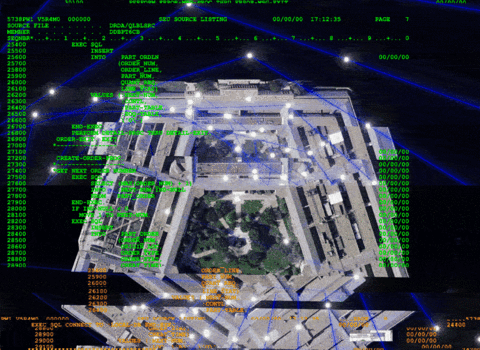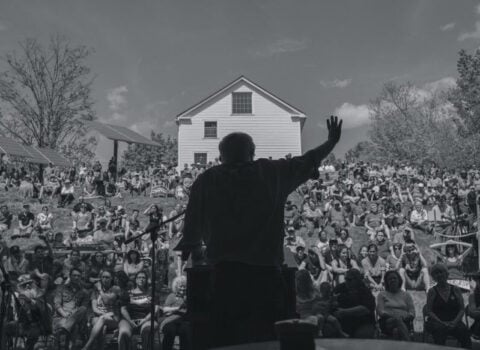A Policy of Hypocrisy
Trump wants to cut off Mexicans’ money? That’s what the Obama Administration already does to Somalis.
In April, Republican presidential frontrunner Donald Trump revealed to voters his plan to compel Mexico to pay for the construction of a wall on the southern border of the United States: he’d regulate wire transfers so that people living in America couldn’t send money to their Mexican relatives—a practice, Trump argued, that costs the country’s economy $24 billion every year. Upon hearing this plan, Barack Obama was poised and ready to set Trump right. “The notion that we’re going to track every Western Union bit of money that’s being sent to Mexico—good luck with that,” he told reporters at the White House this month. Such a sage observation certainly highlights the intellectual gulf between the crass billionaire and our professorial chief executive; but were Trump better informed, he could point out that the Obama Administration is itself already in the remittance-blocking business.
Trump could point to Somalis in the United States who are restricted from sending money to relatives and friends in desperate need. “Somalia is still recovering from the 2011 drought yet is currently experiencing another catastrophe,” Minnesota Congressman Keith Ellison, thousands of whose constituents send money home, told me. “Current restrictions have capped the amount of money Somali-Americans can send and have made remitting money more expensive. Oftentimes these funds are the sole source of income for their families in Somalia. I’d say it’s a pretty big issue. In fact, it can be life or death.”
Two-fifths of Somalis depend on money from the vast diaspora scattered across the globe by decades of war and famine—money that accounts for as much as 45 percent of the country’s GDP. Despite ongoing civic disruption, Somalia has a remarkably efficient communications system that should make it easy for expatriates to send money to relatives. Thanks to mostly Somali-owned Money Transfer Offices, which move funds through banks in the United States and the Gulf, even remote areas of the country have speedy access to financial support. This becomes especially important in times of famine, when those who can normally sustain themselves are in urgent need.
None of this is to the taste of the vast U.S. government apparatus erected since 9/11 to detect and choke off the movement of any money that might benefit terrorists. Almost from the moment the World Trade Center came down, American officials trumpeted the notion that international terrorism was supported by a sophisticated financial network, possibly underpinned by the fabled fortune of Osama bin Laden himself. Eager to strike back at the terrorists, the Bush Administration quickly identified an easy target in Al Barakat, a prospering Somali business involved in, among other things, transferring remittances from its U.S. branches to Somalia, which administration officials confidently cited as “the quartermaster of terror.”
Within weeks of 9/11, agents raided the firm’s offices across three continents, arresting executives and seizing assets. President Bush himself hailed the moves, boasting that they were the results of “solid and credible” evidence that Al Barakat was operating “at the service of mass murderers” and was indeed an integral part of Al Qaeda. The strike on Al Barakat was thereafter highlighted as an early victory in the war on terror. “The Treasury Department, whenever it was asked to talk again about the financial war on terror, the Al Barakat case was always listed among the great triumphs,” Ibrahim Warde, an adjunct professor of international business at Tufts and author of The Price of Terror, told me.
The crackdown had immediate and dramatic effects in Somalia, where hundreds of thousands of people suddenly found themselves cut off from their primary source of income. For Al Qaeda, on the other hand, the effects were precisely zero, except perhaps as a recruiting aid, because a belated search for actual evidence of connections to terrorism came up empty. Investigators combing the firm’s books for the slightest indication of illegality, let alone terrorism, found nothing. Exoneration came slowly and, in contrast to the blizzard of publicity attendant on the initial raids, was kept decidedly low-key. The 9/11 Commission reported in 2004 that it had found no evidence to support the initial charges, but few paid attention. In 2006 the Treasury quietly took Al Barakat’s employees off the list of designated terrorists, but Mohammed Suleyman Barre, interned since 2001 in Guantanamo—which he described as “hell on earth”—thanks to a possible association with Al Barakat, was not released until 2009.
Finally, in February 2012, the United Nations, in concurrence with the United States, formally cleared the company of all charges, and returned all its seized assets. The move came a little too late for Ahmed Dhakane, a Somali immigrant sentenced in Texas in 2011 to ten years in prison for omitting an earlier connection to Al Barakat as well as a defunct militant Islamist group, Al Ittihad Al Islamiya, on his application for asylum.
This sorry fiasco had little or no effect on the basic presumption that money is, in the words of Colin Powell, the “oxygen of terrorism.” Well-endowed bureaucracies exert ever-tightening control over the global financial system, requiring banks to retain huge compliance staffs lest they unwittingly enable money to move into the wrong hands. Penalties for detected transgressions can be savage; in 2014, U.S. authorities hit the French bank BNP Paribas with $8.9 billion in fines for financial dealings with Iran, Sudan, and Cuba. As intended by those who crafted the U.S. sanctions, the threat of such punishment has had a powerful effect on the global banking industry. “Any time there’s a customer who’s considered high risk or is in a high-risk country, and the high risk is always very broad, very vague,’ said Warde, “then the banks feel it makes business sense to stop dealing with those people.”
The money-transfer system inescapably involves banks, who accept deposits from transfer firms and wire them to corresponding banks in or near the destination country, whence it is paid out to the recipient by the transfer company’s local office. One by one, the banks who had served as indispensible links pulled out of the business in recent years, citing the onerous burden of regulation. In 2014, the last important bank, Merchants Bank of California, on which almost the entire Somali money-transfer system from the United States had come to depend, was ordered to abandon that business by the Office of the Comptroller of the Currency, one of the many agencies with a finger in the counter terror-finance pie.
In consequence, the transfer companies have been reduced to sending couriers with hundreds of thousands of dollars in suitcases on flights to Dubai. This horrifies human-rights officials who have been lobbying the administration to relax restrictions on the banks. “What scares me about that,” one official told me, “is not only the fact that it means that people sending money might not receive [it], or that a terrorist organization could get its hands on a lot of money. What scares me most is that if that happens and goes public, banks will run away, and the Treasury Department will wash its hands of this situation completely and say, ‘See? I told you. I told you these guys were unsavory and risky.’ That’s the end of when we have any sort of constructive conversation about facilitating remittances.”
“Absolutely,” agreed Warde, pointing to the irony that the thicket of regulations has actually driven money underground. “From every perspective we see the absurdity of the effects of this financial war on terror. The fact is that there is more money underground going to these parts of the world than there was 15 years ago.”
Meanwhile, there is no shortage of crocodile tears around Washington over the ongoing restrictions on remittances, but without practical effect for hungry Somalis. As Ellison told me, “While banking regulators, USAID, State Department and National Security Council officials are all concerned about the remittances problem, there’s no urgency towards providing a solution.”
On March 31, Peter de Clercq, U.N. humanitarian coordinator for Somalia, issued a special $105 million appeal for relief for those parts of the country most at risk from the ongoing drought. He described the situation as “critical.”









































































































